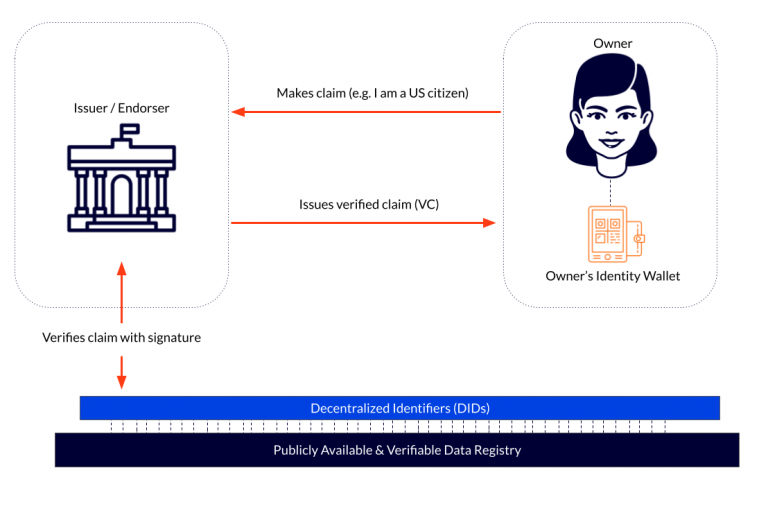In one of our recent posts, we looked at one potential application of decentralized identifiers (DIDs), social security numbers (SSNs). The SSN use case highlights the role that government-issued credentials must play in establishing DIDs as a legitimate source of identification. It also demonstrates that the ways we perceive, interact with, and protect persistent (i.e. life-long) identifiers will likely change in the coming years.
In this post, we will consider another compelling use case for a self-sovereign identification (SSI) framework through DIDs: academic credentials.
Making claims about one’s academic credentials is a fairly standard practice. Whether you’re sending over your qualifications to your dream university, updating the education portion of your LinkedIn profile, or adding an honorific like “Dr.” to your title, declaring your credentials is an accepted way to assert your qualification, competence, and/or authority in a certain field.
However, being able to prove one’s academic credentials isn’t always so easy or straightforward.
For example, when you move abroad, proving your credentials can be a time consuming and frustrating process. Ordering new copies of credentials from your university and obtaining official translations of these copies constitute the more manageable requirements. However, it’s also possible that your diploma in one country doesn’t confer the same credentials in another country, which can set you back academically and professionally.
Preparing and processing a request for your academic credentials can be tedious and time consuming, largely due to a string of manual, face-to-face, and paper processes associated with gathering and checking relevant identifying information, form-filling, notarisation, query handling, and record keeping. These bureaucratic processes can also be costly.
There are cases when universities lose their accreditation or shut down. If you have already received your degree, a school’s closing probably will not affect the validity of your diploma (though it almost certainly will impact the perceived value of your credentials). However, the closed school might not provide a persistent and accessible record of degrees, which presents obvious challenges for those looking to access their records.
The current lack of portability, interoperability, persistence, and easy accessibility that currently characterise credentials of higher learning make them an extremely interesting use case for DIDs.

Could you imagine having your verified, academic credentials conveniently stored in your secure identity wallet? Not only would this cut down the time and costs of requesting, verifying, and issuing your credentials, but it would also increase the security of these processes — There would be practically no risk of loss and disclosure of sensitive data to unspecified 3rd parties. Ideally, streamlining and securing these processes would improve accessibility to jobs, further education, and other public services — such as government fundings for entrepreneurship — especially for individuals who are living abroad, who are originally from a different jurisdiction, or who are considered refugees.
The issue of persistence would also be addressed, since DIDs are meant to be stored in a form of verifiable data registry, such as a publicly available decentralised database or distributed ledger. That means that even if a school was to close or lose its accreditation, the DID itself would continue to exist in this registry. That being said, institutions that are closing or going to lose their accreditation would need to guarantee some sort of “endorsement grace period” for students to request the issuance of a verified credential.
An additional benefit of issuing academic credentials following a DID model would be a crackdown on fraud. Various reports show that fake degrees created by “diploma mills,” i.e. scam schools that often only exist online, are a growing problem that make up a multibillion-dollar industry worldwide. In a future where verified, decentralised, and encrypted credentials from trustworthy, third party institutions become the standard for proving academic and professional qualifications, the market for credential fraud will be significantly diminished.
For many of us, our academic and professional credentials comprise a fundamental element of our identity that not only attest to the personal investment in our education, but also open the doors to various opportunities throughout our lives. We should all be able to easily and reliably access and wield these identifiers. This is where DIDs can play a role.
Yes, we are still years away from realising a fully-integrated infrastructure that enables decentralised academic credentials that are truly portable, interoperable, persistent, and easily accessible. However, with the public, private, and academic sectors all having overlapping interests in the robustness of academic credentials, decentralized diplomas (and other qualifications) could prove to be a key use case that pushes the DID and SSI movement forward.
By submitting your email you consent to receive iov42 newsletters by email. You can unsubscribe at any time. For further information, please see our Terms and Conditions and Privacy Policy
